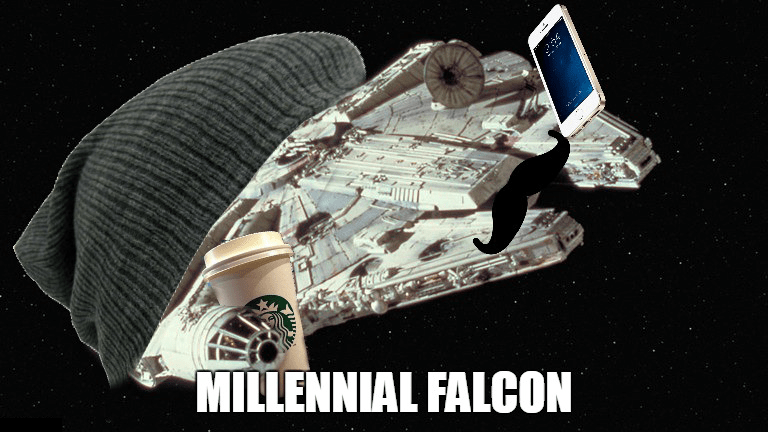5 shocking things you don’t know about next-gen facility managers
First off, I have to congratulate you on clicking through to read this article. You are well on your way to understanding the younger, future generation of facility managers and you didn’t even realize it. “How” you ask? The title of this article is what is commonly referred to as “Clickbait” which is generally targeted towards a younger, tech-savvier audience. I crafted the title of this blog post so that it followed a handful of rules known to increase click-through rate:
- Use a list approach with an odd number of items. For example, “5 shocking types of…” or “17 amazing tips to…”
- Add an element of excitement with words like “shocking” or “amazing.”
- Use negative words in the title such as “no” or “not.”
I don’t want to go into any more detail about optimizing blog post articles as there are hundreds upon hundreds of articles dedicated to this subject, but I do want you to simmer on the point that your future customer, the next generation of facility managers, is right around the corner and you probably don’t understand what makes them tick. No matter what you think about us millennials, we are starting to fill important, decision-making roles. Your company and, more importantly, your brand can be prepared when you understand how our generation operates and how to apply that knowledge to the facility manager of the future.

They are always connected
I feel naked without my phone. Seriously. Unless I have mentally prepared myself for a preplanned excursion without it, like a recent trip to Yosemite, forgetting my phone on any other day leads to inexplicable anxiety. Honestly, I was relieved when I realized that I had a signal when I arrived at the base of El Capitan! Unfortunately, my boss knows that he can call at any hour and expect an answer. Admittedly, I, like my fellow millennials, really don’t mind working in off hours if work needs to get done.
Takeaway: When you send an email to a next-gen facility manager at 9pm, you can pretty much expect that they received it. When possible, give them a low friction or short-form means to respond such as a simple “yes,” “no,” or electronic quote that enables one-click approval.
They hate talking on the phone
Ironically, as much as we love our smartphones, we hate talking on the phone. We’d much rather txt or email than spend 10 minutes discussing anything over the phone. I’ve got a list of important calls that I’ve been meaning to make for the past couple weeks, but here I am catching up on emails and writing a blog post instead.
Takeaway: Don’t rely on phone calls as a primary means of communication with millennial facility managers. Instead, use electronic communication such as txt, email, electronic quotes, or Service Links.
They are impatient
Social media and instant means of communication have led to a need for immediate gratification for millennials. Instantly receiving likes and retweets for pictures and comments has resulted in a need for immediacy in the other aspects of our life. Constant access to all forms of communications our entire adult lives means that we’ve never had to wait until we “got back” to a computer to check our email.
Takeaway: Information about the services you provide must be accessible immediately. After-service summaries, deficiency reports, and quotes can’t be delayed by days. Delays in information will be unacceptable.
They prefer self-serve over customer service
I’ve never ordered anything over the phone or by mail. I’ve been spoiled by the Amazon experience and I consider any business that requires me to speak to customer service on the phone as antiquated. To my generation, great customer service happens when people don’t have to get involved because I made my purchase or achieved my goals via the company’s self-serve kiosk, mobile app, or online features.
Takeaway: As much as possible, rely on applications that enable your customers to engage with you online to retrieve the information they need, make purchases, and schedule work. This has the added benefit of reducing the amount of administrative labor in your office dedicated to traditional, phone-based customer service. A few great examples of these features include online payment platforms, ServiceTrade quotes, Service Links, and Service Portal.
They hate paper
Often, I hear stories of companies that print paperwork because it is the primary driver of internal processes and because “we just like paper.” Don’t get me wrong, I, like most millennials, think this is an environmental waste, but we are more baffled by the preference for and the inefficiencies of paper processes. Having grown up with collaborative document platforms such as Google Drive, we have a strong preference for paper-free processes and view paper as old fashioned.
Takeaway: Although paperless processes can drive internal efficiencies, it should be viewed as a means of enhancing the quality of your customer service. In the future, Facility managers will expect electronic documents and view companies that use paper as substandard.
Our CEO, Billy Marshall, has a common adage that, among other insights, succinctly describes the mindset necessary to be successful with the next generation of facility owners and managers:
“Innovation is not optional.”
Leaning on ideologies like “that’s just how we’ve always done it” or “we got this far without changing” will not work with the next generation due to their massive exposure to technology. Your old school customer service will need to be overhauled to meet the needs of millennials or they will turn to your competition. However, those brands that adopt the technology mandate have the opportunity to build valuable, sustainable brands.
